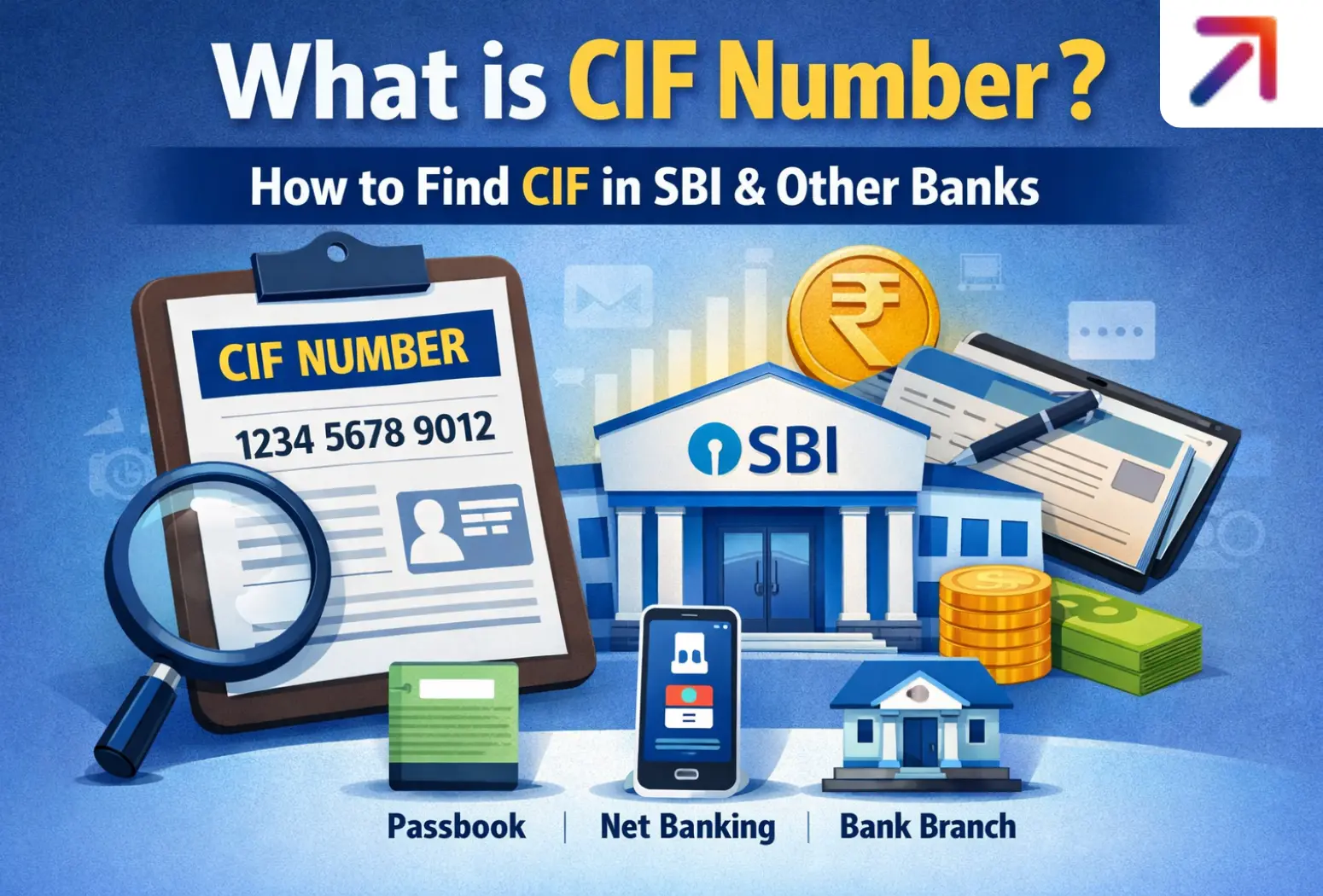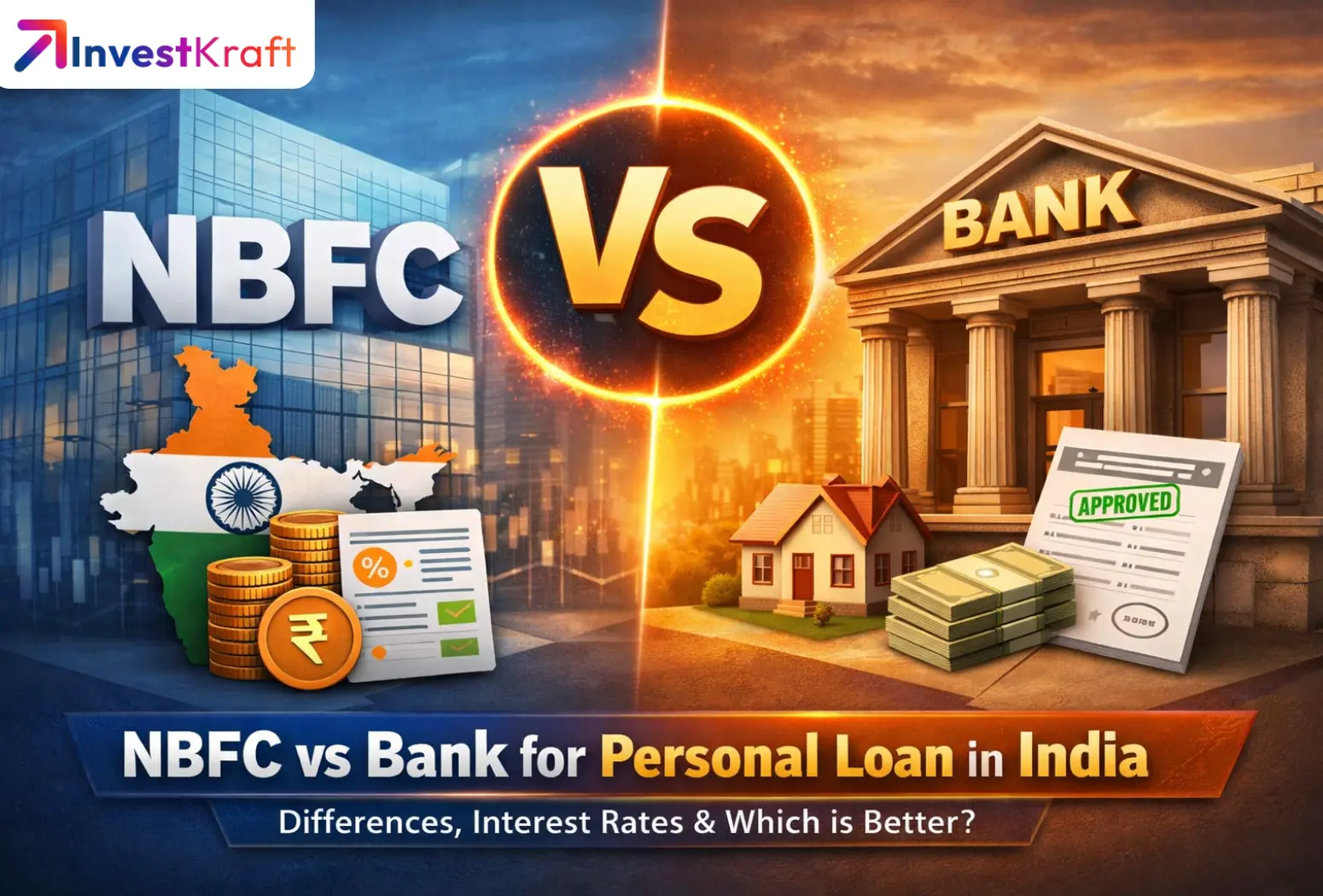
CIBIL full form is Credit Information Bureau (India) Limited. It is India’s first and most widely used credit bureau, now part of TransUnion, that tracks individuals’ and businesses’ borrowing and repayment history.
A CIBIL score is a three-digit number ranging from 300 to 900 that represents your creditworthiness. The closer your score is to 900, the stronger your credit profile.
A score above 750 is generally considered good, while a score below 600 is considered poor.
Banks and NBFCs rely on your CIBIL score and CIBIL report before approving loans or credit cards. A higher score increases approval chances and helps you get lower interest rates. A low score may lead to rejection or higher borrowing costs.
In this blog, we will understand how you can check CIBIL score online in a step by step manner and along with it, some very important and beneficial points about CIBIL and credit scores.
A credit report is a detailed record of your loans, credit cards, repayment history, balances, and enquiries. The CIBIL score is calculated using this information.
In simple terms, the credit report is the detailed file, and the score is its summary.
Reviewing your CIBIL report regularly helps you identify errors such as incorrect balances, unknown loans, or wrong personal details before they affect your score. Maintaining an accurate report helps improve your credit profile over time.
Many people use both terms interchangeably, but there is a difference. Let us understand this difference from the table below:
| Basis | CIBIL Score | Credit Score |
| Meaning | Score issued by TransUnion CIBIL | Generic term for a score issued by any credit bureau |
| Issuer | TransUnion CIBIL | CIBIL, Experian, Equifax, or CRIF |
| Score Range | 300 – 900 | Depends on the bureau model |
| Usage in India | Most widely used by banks and NBFCs | Used along with other bureau scores |
| Purpose | Measures creditworthiness | Same purpose, different scoring model |
A credit score is a general term used for the score issued by any credit bureau, such as CIBIL, Experian, Equifax, or CRIF. A CIBIL score is specifically the credit score issued by TransUnion CIBIL.
In India, both represent your creditworthiness, but the CIBIL score is usually considered more important because most banks and NBFCs primarily check the CIBIL report during loan approval. This is why people commonly refer to their credit score as their CIBIL score.
In simple terms, every CIBIL score is a credit score, but lenders in India often give more weight to the CIBIL score while making lending decisions. Maintaining a good score across all bureaus is always recommended.
India has four RBI-authorised credit bureaus:
Each bureau collects credit data from banks and NBFCs and generates a credit report and score. CIBIL scores range from 300 to 900, while CRIF may use a slightly different scale.
RBI regulations allow individuals to get one free credit report per year from each bureau.
Although scoring methods differ slightly, lenders in India most commonly rely on TransUnion CIBIL while making lending decisions. It is recommended to check reports from all bureaus occasionally for accuracy.
A good CIBIL score is generally 750 or above. Higher scores indicate lower risk for lenders. Let us understand in detail the meaning of CIBIL scores from the table below:
| Score Range | Meaning |
| 750 – 900 | Excellent – Best approval chances |
| 700 – 749 | Good – Approved by most lenders |
| 650 – 699 | Fair – Higher interest possible |
| 600 – 649 | Poor – Limited options |
| 300 – 599 | Very Poor – Mostly rejected |
Most banks prefer at least 650–700 for personal loans or home loans.
Your CIBIL score directly affects loan approval. The following is the broad range of required CIBIL scores for loans:
If your score is between 550 and 600, banks may reject applications, but NBFCs or fintech lenders may still approve loans at higher interest rates or with a co-applicant.
The following are the steps that you need to follow to check your CIBIL score:
You will be taken to another page for basic information collection.
Please note that CIBIL will require this personal information about you before proceeding.
Once verified, you will receive your free credit report at your email address.
Please note that after registration, you can log in through the Member Login option on the CIBIL website. The dashboard shows your credit score, active loans, credit card balances, and enquiry history. Keep login credentials secure and review your report regularly.
You can check your credit score on Equifax, Experian and CRIF as follows:
Note: Checking your own score does not impact your credit rating.
NH in CIBIL means No History. It appears when a person has never taken a loan or used a credit card, or when there is not enough credit activity to generate a score. In this case, the credit bureau does not have sufficient data to calculate a CIBIL score.
NH is not negative, but lenders may hesitate because there is no repayment history to evaluate risk. To build a credit score from NH status, you can start with a small loan, a secured credit card, or a low-limit credit product and repay it regularly. Over time, consistent repayments help generate a proper credit history and improve loan eligibility.
Your CIBIL score changes whenever banks or NBFCs report new credit information to credit bureaus. Since lenders now update data more frequently, your score can change within weeks depending on your financial behaviour.
In simple terms, responsible repayment and controlled borrowing improve your score, while delays and excessive credit usage reduce it. Regularly checking your CIBIL report helps you understand these changes early and take corrective action.
People with a low CIBIL score still have borrowing options through fintech platforms that evaluate income and repayment behaviour along with credit score. Commonly known platforms include:
These options should be used carefully and only for genuine short-term needs.
Many advertisements claim instant loans without CIBIL checks. In reality, most regulated lenders check at least one credit bureau. However, approvals may still happen through:
Borrowers should be cautious of unregulated apps promising guaranteed approval without verification, as they may charge excessive interest or hidden fees.
Improving your score requires discipline and consistency. The following are some of the key points:
Small improvements may appear within a few months, but major score improvements usually take 6 to 12 months.
If you find incorrect information in your CIBIL report, you should raise a CIBIL dispute immediately. The following are the steps you need to take:
Dispute resolution is free and usually completed within 30 days. Please check your emails and messages regularly for any updates. Sometimes, mail from TransUnion land in your spam folder, so make sure you check your spam folder as well.
RBI has made credit reporting more frequent to improve transparency. Banks now update credit bureau data every 15 days, and from July 2026 onwards, updates will happen weekly. This means your repayments or missed payments will reflect faster in your credit report.
The following are some of the common myths about CIBIL:
| Myth | Reality |
| Checking your own score reduces it. | Self-checking is a soft enquiry and does not affect your score. |
| One missed payment destroys your score permanently. | Consistent future payments improve your score again. |
| All scores above 600 are acceptable. | Most lenders prefer 650-700 or higher. |
| All credit bureaus show the same score. | Scores vary slightly due to different scoring models. |
Your CIBIL score and CIBIL report play a crucial role in your financial life. Understanding how scores are calculated, how to perform a CIBIL score check, and how to improve your credit behaviour can significantly increase your chances of getting loans at better interest rates. With RBI’s faster reporting rules and growing digital lending, maintaining a healthy credit profile is more important than ever.
A score of 750 or above is considered good. 800+ is excellent.
Credit Information Bureau (India) Limited.
It’s very good. You’ll get most loans easily with competitive interest rates.
Very few people reach 900. It means a perfect credit history with no missed payments.
Yes, many partner websites offer free monthly checks. Official CIBIL gives one free report per year.
No. Only hard enquiries (when you apply for a loan) affect your score.
Usually, 3 - 6 months with good payment behaviour. Bigger improvements can take 12+ months.
Payment history (35–40%), credit utilization (30%), length of credit history, new credit applications, and mix of loans.
No, not usually. If you have never taken a loan, used a credit card, or had any credit activity reported, CIBIL (and other bureaus) will not generate a regular score (300-900). Instead, your report often shows -1, NH (No History), or no score at all. This means there is no credit history to calculate from. It's common and not the same as bad credit—it's just “no data.”
A low or non-existent score without loans usually happens because of no credit history. Lenders and bureaus need to see how you handle credit to give a proper score. With zero activity, they can't assess you, so it defaults to -1 or NH. Other rare reasons include errors in your report (like mismatched details) or very old inactive accounts not updated. Start building history with responsible credit use to fix this.
If you've never taken a loan or used credit, you likely don't have a standard credit score. CIBIL will show -1 (No History or NH) or indicate no score. Some reports say "New to Credit" or "NA" (Not Applicable). This is normal for people starting out. A true 300-900 score only appears after some credit activity, like a credit card or small loan, reported positively.
Yes, it can affect it negatively in the long run. No loans mean no credit history, which lenders see as higher risk because they have no proof of your repayment behavior. This often results in -1, no score, or difficulty getting approvals. Having no debt is good financially, but building a positive credit history (through small, on-time credit use) helps your score over time. It's a balance—avoid debt traps, but show responsible credit management.

Diwakar Kumar Singh is a finance writer and BFSI specialist with 7+ years of experience in financial content and research. He has authored hundreds of finance articles, published multiple books internationally, and contributed to research publications. A Gold Medalist MBA from IMT, he brings a strong analytical understanding combined with clear, reader-focused communication. His work focuses on simplifying complex financial topics, including IPO analysis, unlisted shares, financial ratios, and company evaluations, providing well-researched and evidence-based insights to help readers make informed financial decisions.

If you have ever checked your bank passbook or net banking profile, you may have noticed a ter...
Read more...
CIBIL full form is Credit Information Bureau (India) Limited. It is India’s first and most wid...
Read more...
When it comes to personal finance, choosing between an NBFC (Non-Banking Financial Company) and a tr...
Read more...
Looking to make some extra cash from home in 2026? You're in luck. With the rise of digit...
Read more...
Investing in government schemes is a smart way to grow your money safely. These plans are back...
Read more...
The Union Budget 2026 is India’s annual fiscal plan for FY2026-27, outlining the government’s...
Read more...
Want to know a risk-free investment option with a high monthly return? Then we strongly recomm...
Read more...
With the advent of AI and digital payment methods, India has recently seen a surge in fintech...
Read more...
Before you head out to carry out your important banking activities in 2026, please read this b...
Read more...
There is a moment in everyone’s financial life when they look at their credit card bill and wo...
Read more...Reach out to our Experts if you have any Doubts
Drop a Mail or give us a Missed Call & Begin your Investment Journey here
